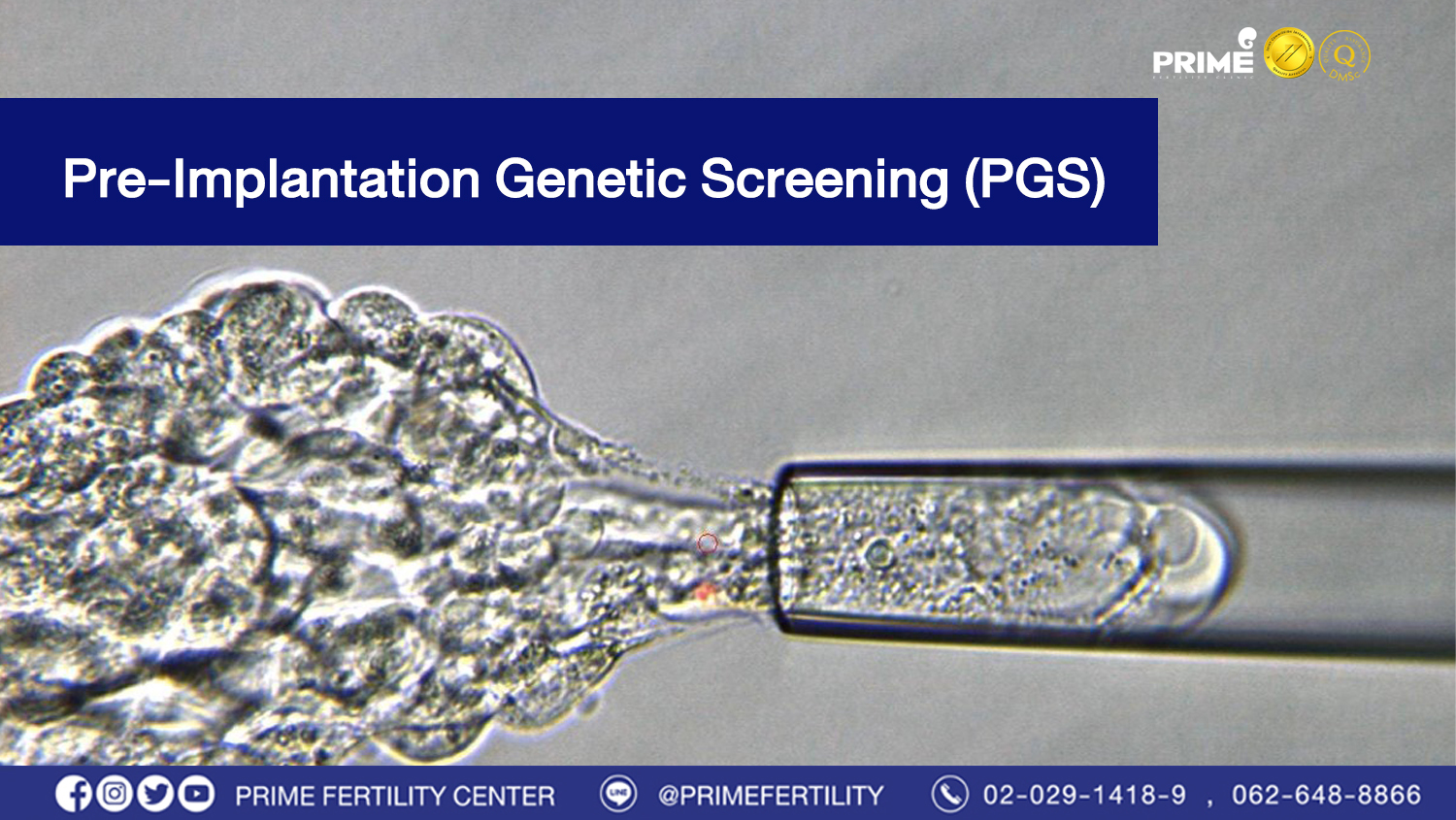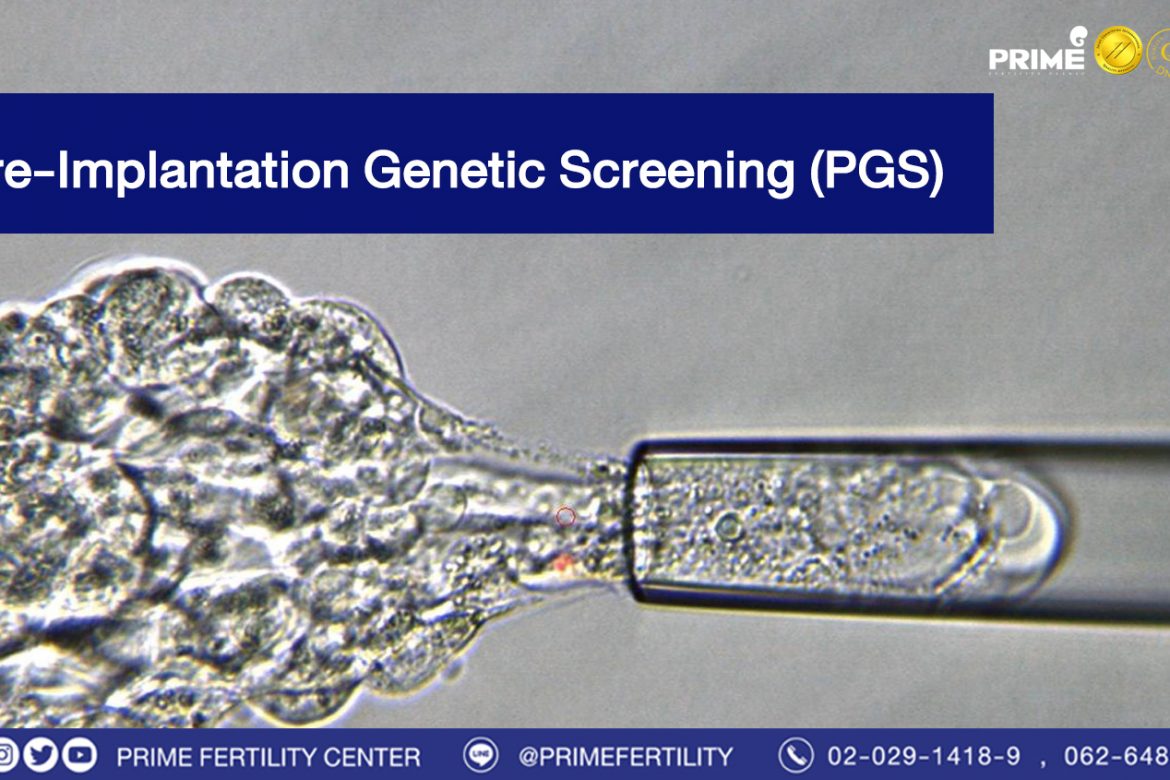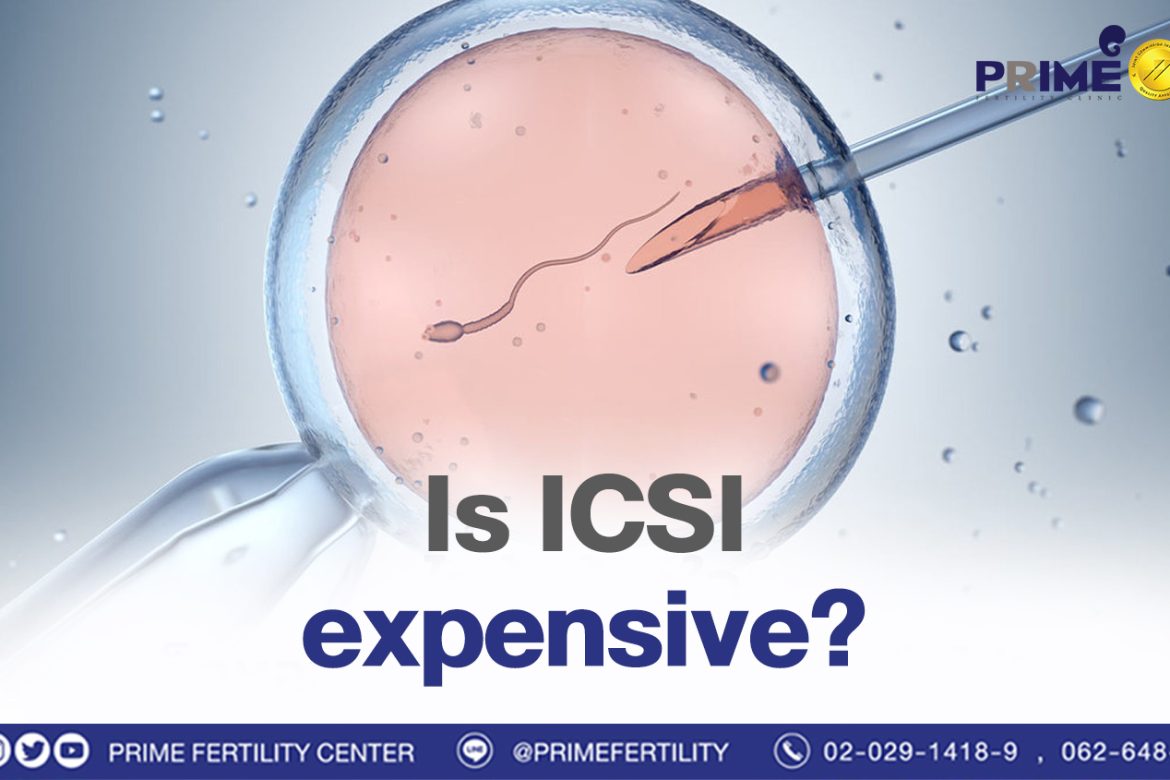Pre-Implantation Genetic Screening (PGS) is an embryo chromosome testing or genetic materials testing before embryos are transferred to the uterine cavity.

Laboratory specialist will take out cells from the embryo to do the chromosome testing. (To take out the cell is called “Biopsy”) This test can evaluate 23 pairs of chromosomes, 46 totally. Not only to detect chromosome abnormalities, it can also show a sex chromosome (XX or XY) of the embryo as well.
Technology of PGS that PRIME has used is NGS (Next Generation Sequencing). It gives high efficacy and 99.9% accuracy. The purpose of NGS testing is to detect genetic abnormalities. According to the law, gender selection is not allowed. Moreover, genetic disorders diagnosis of the embryo must be under the doctor’s consideration. Whether a couple meets the requirements or not. For examples:
- Either husband or wife or both has hereditary genetic disorders that can be passed to the fetus.
- History of early pregnancy loss at less than 12 gestational weeks, 2 miscarriages onward
- Wife is 35 years old onward and found some medical indications that embryos are likely to have genetic disorders.
- Experienced 2 consecutive failed cycles of infertility treatment using the assisted reproductive technology
A couple who prefers to do the embryo genetic testing, we will need to ensure whether there are any indications for testing or not. After that, the couple will be informed about the testing procedures, limitations, interpretation accuracy, success rate of the test as well as success rate of the embryo implantation. The couple will receive this information before proceeding the embryo genetic testing.
–
Reference: Prime Fertility Center Co., Ltd.



